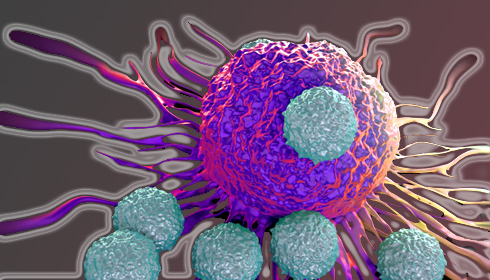
Groundbreaking Discovery Unlocks New Frontiers in Cancer Immunotherapy
In a monumental leap forward in the fight against cancer, scientists have achieved a breakthrough that could redefine treatment approaches. Researchers at St. Jude Children’s Research Hospital have unveiled a plethora of promising targets for chimeric antigen receptor (CAR) immunotherapy, offering a beacon of hope for more precise and effective cancer treatments.
The findings, published in the journal Nature Communications, offer hope for more effective and precise cancer treatments.
Dr. Stephen Gottschalk, Chair of the Department of Bone Marrow Transplantation and Cellular Therapy at St. Jude, expressed optimism about the discovery, stating, “We discovered targets for cancer immunotherapy, which hopefully can be translated in the future into curative approaches.”
The research team meticulously analysed genetic data from over 1,500 paediatric tumour samples, comparing them with normal tissue samples. Through this comprehensive analysis, they identified 156 potential targets for CAR T-cell therapy, including promising candidates like COL11A1.
Dr. Jinghui Zhang, from the Department of Computational Biology at St. Jude, highlighted the collaborative nature of the research, stating, “In addition to validating the selected targets, we have built a data resource for the community. The final list is available on a web portal. Others can evaluate the evidence and pursue any of these targets.”
The newly developed portal, SCE-Miner, provides open access to the data on the St. Jude Cloud platform, empowering external researchers to explore the targets and conduct further analyses. Dr. Gottschalk emphasised the significance of this resource, stating, “Our portal empowers the users to explore these targets and the underlying data. Other scientists can say, ‘Is this target present in a particular paediatric cancer subtype?’ They can access that information in the cloud and do their own analysis.”
One of the distinguishing aspects of this study is the inclusion of targets beyond traditional membrane-associated proteins. By considering proteins within the extracellular matrix, the researchers expanded the scope of potential targets for CAR T-cell therapy.
Explaining the significance of this approach, Dr. Gottschalk said, “Normally, groups looking for new CAR targets look only at membrane-associated proteins. But one of our targets told us that we needed to broaden our criteria to include proteins of the extracellular matrix. When the CAR comes, it can still recognise that protein and kill the cancer cell.”
Furthermore, the study identified cancer-specific isoforms, variations in gene expression that are unique to cancer cells. This nuanced understanding of genetic expression provides valuable insights for developing targeted therapies.
The study, led by Timothy Shaw, Jessica Wagner, and Liqing Tian of St. Jude, received support from various organisations, including the National Institutes of Health and the Alex’s Lemonade Stand Foundation.
St. Jude Children's Research Hospital, renowned for its dedication to combating childhood cancer and other life-threatening disorders, continues to pioneer groundbreaking research that promises to reshape the landscape of cancer treatment. With this latest discovery, the prospect of personalised and effective immunotherapy for cancer patients shines brighter than ever before.